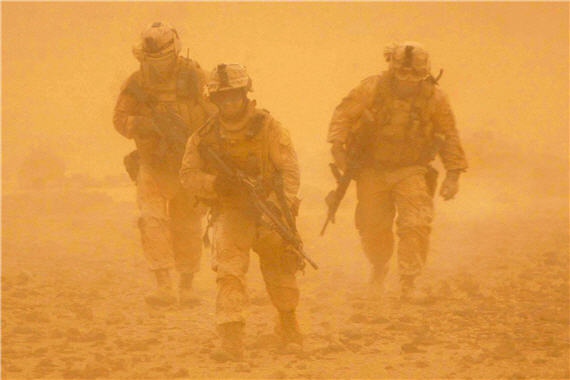The video of what appears to be four US Marines urinating on the corpses of Taliban fighters has gone viral.
For those who haven’t yet seen it, it’s embedded below. Needless to say, it’s not for the squeamish:
The outrage expressed by Secretary of Defense Panetta, Secretary of State Clinton, and other official spokesmen is genuine. Presuming this is authentic–and there’s no reason to think otherwise, as Panetta and Clinton have acknowledged–it’s quite probably a war crime. It’s certainly a violation of the values of the United States Marine Corps, the country they serve, and basic human decency. It’s especially shameful coming from US Marines, whose ethos demands that they risk life and limb to recover their own fallen comrades-in-arms. They certainly knew how this vile action would be perceived.
These Marines will certainly be punished, quite severely, for their actions and rightly so. But, while saddened by the video, I’m not surprised. Such incidents happen in war. They always have and always will. The difference, of course, is that they now get videotaped and can go viral on the Internet in a matter of hours.
Militaries take decent young men and women–mostly men–and train them to kill other human beings on command. Remarkably, they’re supposed to kill members of the opposing force without hesitation while at the same time taking a high degree of personal risk to safeguard noncombatants–including enemy fighters who have surrendered and/or are injured and out of the fight. More remarkably, achieving this seemingly absurd standard has been the norm with professional soldiers and conscripts alike.
In order to kill people one you have never met and who have done nothing to you other than being born in another country, it is helpful, perhaps even necessary, to dehumanize and vilify the enemy. They’re given derisive nicknames, made the butt of dark jokes, and every cultural difference exaggerated. In the cases of the recent wars Americans have fought, that often takes on uncomfortable racial, ethnic, and religious undertones. But it happened in World War II, when the enemy (in the European theater, at least) could well have been a not-too-distant relative, too.
It’s regrettable but hardly shocking that occasionally this coping tool spills over into horrific actions that even most other warriors in theater will condemn. While these incidents are far too frequent, they’re still exceedingly rare. Indeed, even the Taliban’s leadership seems to understand that, having already declared that this won’t impact negotiations.But that doesn’t mean that they won’t extract whatever propaganda value they can out of the video, which certainly lends ammunition to those who want to believe America is at war against Muslims.
Further, it can’t help but undermine support for the war effort here at home. It just adds to the notion that something very ugly is going on “over there” and that it’s time to bring it to an end.
James Joyner is managing editor of the Atlantic Council.
Image: marines-afghanistan.jpg
